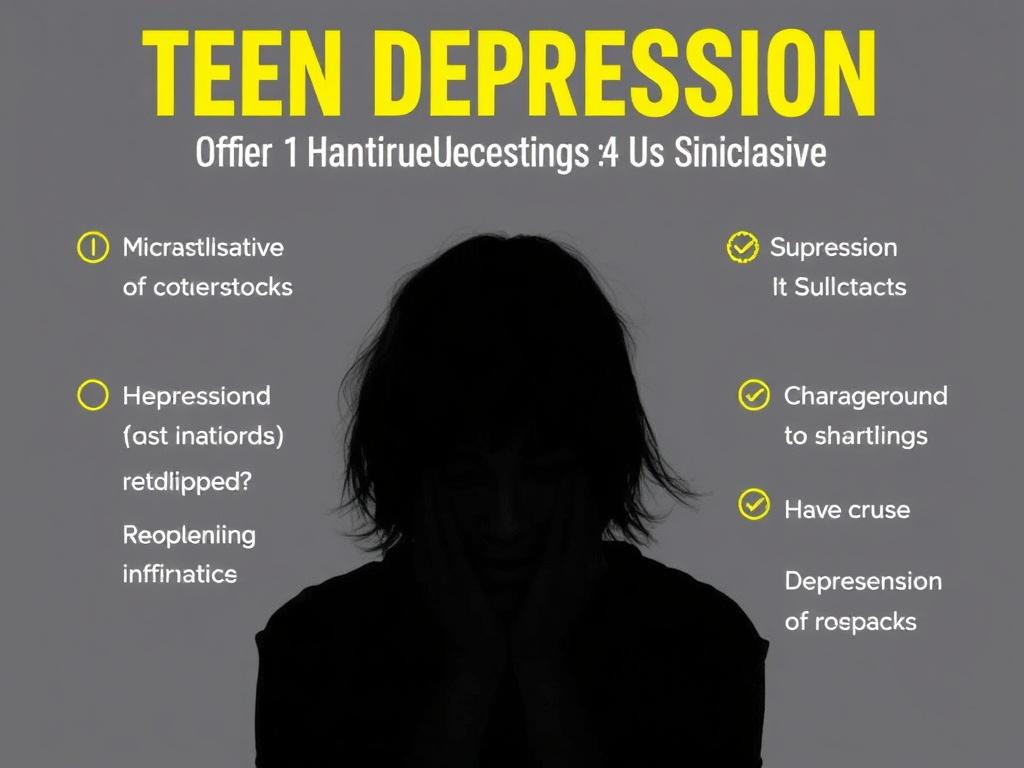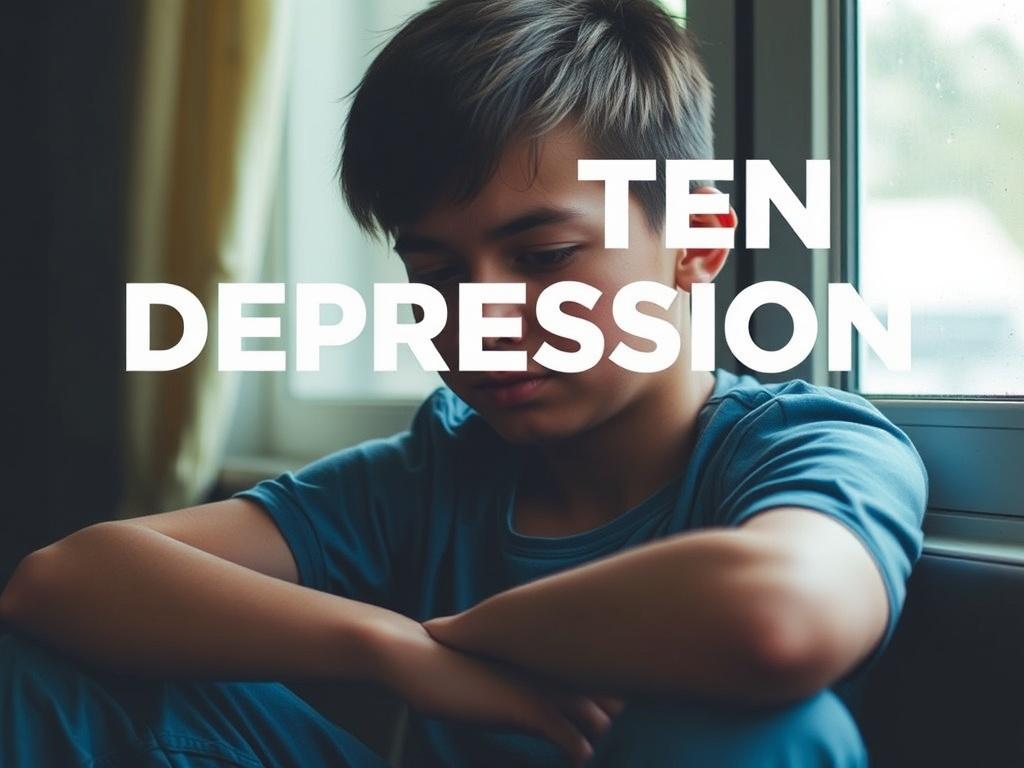SQLITE NOT INSTALLED
Depression is a tough word for anyone to hear, especially when it concerns a teenager. Adolescence is a critical period filled with rapid changes, emotional ups and downs, and challenges that can be overwhelming. Teen depression, however, is more than just the occasional mood swings or feelings of sadness; it is a serious mental health condition that requires attention, understanding, and care. In this article, we’ll dive deep into the world of teen depression, exploring its warning signs, the importance of seeking help, and how families and communities can support young people facing this struggle.
Understanding Teen Depression: More Than Just a Bad Mood
It’s important to recognize that teen depression is different from the typical teenage angst. While it’s normal for teenagers to feel upset or moody sometimes, depression is more persistent and intense. It affects how teens think, feel, and behave on a day-to-day basis and can disrupt their ability to function at school, at home, or with friends.
Depression in teens is not something they can simply “snap out of.” It is a medical condition, often caused by a combination of genetic, biological, environmental, and psychological factors. With millions of teenagers around the world experiencing depression, recognizing the problem early can make a huge difference in prognosis and recovery.
The Roots of Teen Depression
There is no single cause for teen depression. Rather, it is the result of several interacting influences:
- Genetics: A family history of depression increases the likelihood of teens developing it themselves.
- Brain Chemistry: Imbalances in brain chemicals like serotonin and dopamine can contribute to depression symptoms.
- Stress and Trauma: Experiences such as bullying, academic pressure, family conflict, or abuse can act as triggers.
- Social Environment: Feeling isolated or rejected by peers, dealing with identity issues, or struggling with self-esteem can enhance vulnerability.
By understanding these roots, parents, educators, and teens themselves can begin to recognize when something more than normal sadness might be happening.
Warning Signs of Teen Depression

One of the biggest challenges with teen depression is spotting the warning signs early. Teens themselves might not fully understand what they’re going through or might be reluctant to share their feelings. Family members and friends can play a critical role by paying close attention to changes in behavior.
Common Warning Signs
Below is a helpful table outlining some common warning signs of teen depression. It’s important to remember that not every teen will show all these signs, but a pattern or combination is cause for concern.
| Warning Sign | Description | Why It Matters |
|---|---|---|
| Persistent Sadness or Irritability | Feeling sad, empty, or hopeless for most of the day, nearly every day. | This symptom is the hallmark of depression and the first clue that something is wrong. |
| Withdrawal from Friends and Activities | Losing interest in hobbies, sports, or socializing with friends and family. | Shows a loss of pleasure in usual activities and affects social support systems. |
| Changes in Sleep Patterns | Sleeping too much or too little, experiencing insomnia or restless nights. | Disrupted sleep affects overall mood and energy levels. |
| Changes in Appetite or Weight | Significant weight loss or gain unrelated to normal growth changes. | Often linked to appetite changes during depression. |
| Fatigue or Low Energy | Feeling tired or sluggish, even without much physical activity. | Impacts ability to do daily tasks and maintain schoolwork or responsibilities. |
| Difficulties Concentrating | Trouble focusing on schoolwork or completing tasks. | Can lead to poor academic performance and frustration. |
| Feelings of Worthlessness or Guilt | Harsh self-criticism, blaming oneself for things out of control. | Deeply affects self-esteem and worsens depressive feelings. |
| Thoughts of Death or Suicide | Expressing a desire to die or engage in self-harm. | This is a medical emergency and must be addressed immediately. |
How to Notice These Signs
Often, these warning signs appear gradually and can be mistaken for regular teenage moodiness. However, if you recognize these signs lasting longer than two weeks or they interfere with your teen’s daily activities, it’s time to take action. Engage in a calm and supportive conversation with your teen to encourage openness about their feelings.
Common Causes and Risk Factors for Teen Depression

Understanding what gives rise to teen depression can empower caregivers, teachers, and teens themselves to spot at-risk individuals and provide early support. Risk factors can be biological, psychological, and social:
Biological Factors
Depression tends to run in families, indicating a genetic link. Moreover, changes in brain development during adolescence can increase vulnerability. Imbalances in neurotransmitters—chemicals in the brain responsible for mood regulation—can lead to depressive symptoms.
Psychological Factors
Adolescents who experience negative thinking patterns, low self-esteem, or who have difficulty managing stress are at greater risk. Additionally, identity struggles, especially relating to sexuality or gender identity, play a significant role for some teens.
Social and Environmental Factors
External circumstances can also contribute significantly:
- Bullying: Both online and in-person bullying can devastate teen mental health.
- Academic pressure: Constant pressure to succeed can lead to overwhelming stress.
- Family dynamics: Divorce, neglect, abuse, or high family conflict can increase vulnerability.
- Poor peer relationships: Feeling isolated or rejected by peers can deepen feelings of loneliness.
How Teen Depression Affects Daily Life

Depression is not just a state of mind—it affects the way teens function in their everyday lives. This section explores the ripple effects the condition can have.
School and Academic Performance
Depressed teens often find it hard to concentrate, stay motivated, or attend school regularly. This can result in declining grades, missed assignments, and increasing frustration on both sides – for the teen and their caregivers or teachers.
Relationships with Family and Friends
Because depression may cause withdrawal and irritability, teens can isolate themselves from loved ones or lash out unexpectedly. This can damage relationships and leave youth feeling even more alone, perpetuating the cycle.
Physical Health
Depression can lower energy and disrupt sleep and appetite, affecting physical wellness. In addition, it often leads to risky behaviors like substance abuse or self-harm, creating further health complications.
Talk About It: Breaking the Stigma Around Teen Depression
One of the biggest hurdles in addressing teen depression is stigma. Far too many young people worry they will be judged or misunderstood if they admit they are struggling with their mental health.
Creating an open, supportive environment where teens feel safe telling their story is essential. Encouraging honest conversations about feelings and normalizing help-seeking are some of the best ways to combat stigma and promote healing.
Tips for Parents and Caregivers
- Listen without judgment: Create a safe space where your teen feels heard.
- Be patient: Recovery is a process, and it requires time and understanding.
- Educate yourself: Learn about teen depression to respond effectively.
- Stay involved: Keep in touch with school counselors and healthcare providers.
- Encourage activities: Help teens stay engaged in enjoyable and meaningful pursuits.
How to Get Help for Teen Depression
If you suspect a teen you know is suffering from depression, seeking professional help is a crucial step. Early intervention can prevent complications and guide teens toward recovery.
Types of Treatment
Teen depression can be managed through a combination of:
- Therapy: Cognitive Behavioral Therapy (CBT) and Interpersonal Therapy (IPT) are common and effective approaches.
- Medication: Antidepressants may be prescribed but always under careful medical supervision.
- Support groups: Connecting with others facing similar struggles can provide comfort and understanding.
- Lifestyle changes: Regular exercise, balanced nutrition, and healthy sleep habits contribute to overall wellness.
Finding the Right Help
Here are some ways to start:
- Consult your family doctor or pediatrician: They can perform an initial evaluation and refer you to specialists.
- Reach out to school counselors: Many schools offer mental health services or can connect you with local resources.
- Look for licensed therapists: Psychologists, psychiatrists, and social workers specialize in teen mental health.
- Contact helplines: Numerous organizations offer confidential advice 24/7.
Supporting a Teen Struggling With Depression
Support from family and friends is vital for a teen’s recovery. Here are some practical ways to help:
- Be present: Show consistent care and availability, even if the teen doesn’t always want to talk.
- Encourage expression: Allow teens to share their thoughts in their own time and way.
- Promote routines: Help establish daily schedules that incorporate self-care practices.
- Watch for warning signs of worsening depression: If the teen expresses suicidal thoughts, seek immediate professional help.
Preventing Teen Depression: What Can We Do?
While not all cases of teen depression can be prevented, there are steps families, schools, and communities can take to reduce risks.
Creating Protective Factors
| Protective Factor | How It Helps | Examples |
|---|---|---|
| Strong Family Relationships | Provide emotional security and open communication. | Family dinners, shared activities, and honest conversations. |
| Positive School Environment | Reduces bullying and promotes belonging. | Anti-bullying programs, supportive teachers, peer clubs. |
| Access to Mental Health Resources | Early identification and intervention. | School counselors, community clinics, online supports. |
| Healthy Lifestyle Habits | Supports physical and emotional well-being. | Exercise, nutrition, good sleep, mindfulness practices. |
When to Seek Immediate Help: Crisis Situations
In some cases, teen depression can escalate to crises, requiring urgent intervention. Parents, teachers, and friends need to recognize these red flags and respond swiftly.
Emergency Warning Signs
- Expressing suicidal thoughts or plans.
- Talking about wanting to die or feeling hopeless.
- Engaging in self-harming behaviors.
- Extreme withdrawal or silence.
- Sudden mood improvements combined with risky behaviors (a warning sign of potential suicide attempts).
If any of these signs appear, call emergency services, take the teen to the nearest emergency room, or contact a crisis helpline immediately.
Conclusion: Hope and Healing for Teens with Depression
Teen depression is a serious, yet treatable condition. With awareness, patience, and action, teens can navigate this difficult chapter and emerge stronger. The journey requires the support of families, schools, medical professionals, and communities working together to recognize warning signs and provide help.
If you are concerned about a teen in your life, don’t hesitate to reach out. The sooner help begins, the better the chances for healing and a brighter future ahead.
Remember, no one has to face teen depression alone—help is always available, and recovery is possible.
